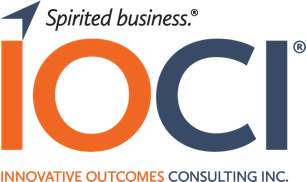Folks who joke about a zombie apocalypse may not be giggling much these days. Their entertainment pastime of creating robotic undead folks walking around is beginning to show signs of life:
- Weather forecasts use complex algorithms to predict hyper-local weather patterns.
- Health monitoring applications, such as the FitBit, use artificial intelligence (AI) to motivate wearers to get healthy.
- Computers write many of the business and sports articles published online.
- Uber is experimenting with self-driving rides for commuters.
- Siri and Alexa are the names of Americans’ new best friends.
Applications for chatbots alone promise endless applications, the tech gurus assure us. So it’s perhaps not so surprising that 62 percent of companies anticipated using some form of artificial intelligence by 2018, according to a study by Salary.com, with Gartner predicting that by 2020, AI will eliminate 1.8 million jobs as technology streamlines manual processes, improves workflows and reduces mistakes.
62% of companies anticipated using some form of artificial intelligence by 2018, according to @Salary study Share on X
The World Economic Forum’s pronouncement is even more dire. The WEF believes that this fourth industrial revolution will lead to a net loss of more than 5 million jobs in 15 major developed and emerging economies by 2020. These countries include Australia, China, France, Germany, India, Italy, Japan, the UK and the United States.
And that’s exactly why savvy leaders are laughing all the way to the bank.
Don’t compete. Leverage!
You see, Gartner also reports that AI will create 2.3 million new jobs as new industries and human skills develop around artificial intelligence. So in the long run, human beings are staring down a significant net gain, as long as they understand exactly how to pivot.
“What is more likely to happen is the work will change. The employee’s role will shift from performing transactional functions to more strategy, planning and goal delivery using AI as an assist or enabler for the employee to perform at a higher level,” says Marialane Schultz, CEO of IOCI.
Performing transactional functions will shift to more strategic planning and goal delivery using #AI as an enabler for an employee to perform at a higher level,” says @IOCILeadership Share on XIn other words, leave machine learning to perform those repetitive tasks. Your job is to embrace judgment and decision-making. Currently, workers are spending only 44 percent of their workday on these elements, so there’s plenty of room for improvement.
“The new smart will be determined not by what or how you know but by the quality of your thinking, listening, relating, collaborating and learning. Quantity is replaced by quality,” says Ed Hess, a professor at the University of Virginia’s Darden Graduate School of Business.
And it’s not like AI is a new colleague. The technology has been around since it was born in a Dartmouth College basement in 1956. And it certainly wasn’t a scary platform to Bank of America leaders, who relied on AI data to determine that they should overlap breaks for their call center workers, and as a result, enjoyed a 23 percent increase in their performance.
See, that wasn’t so bad now, was it?
Perhaps the first wave of AI to actively support at your company would be performance-monitoring technology. As leaders, this will allow you to focus on what your staff needs to focus on next rather than handing you a snapshot of who they were six, eight, 10 months ago. It’s easier to be encouraging in a guide role as opposed to a punishment or corrections position. It’s also more palatable to most leaders to polish their support skills as opposed to the ones that deal with conflict.
All that said, IOCI’s Schultz believes leaders can benefit from adopting an AI mindset and urges them to begin focusing on these specifics:
- Develop stronger strategic abilities to learn how to blend humans, people augmented by intelligent automation and autonomous systems.
- Adapt to a flexible team-oriented approach to drive business outcomes though networks of teams versus traditional reliance on hierarchal approaches.
- Polish creative skills to adapt to leading in the era of AI and to be more competitive.
- Rely more than ever on emotional intelligence skills, which must be strongly expressed in their ability to show empathy.
- Start thinking about acquiring AI talent now to prepare, especially given the big technology players like Google, Facebook and Uber are already scooping up available talent, which is likely to result in scarce AI resources and an all out talent war.
Make this next revolution a true step forward in your career
As a reward, leaders who see AI as an asset and not an enemy will quickly notice that they have more flexible time in their day to pursue a good work-life balance, too. Healthy mental habits can make this next revolution a true step forward for careers everywhere.
Create your own success in Spirited Business®
Spirited Business® is a space where leaders cultivate empowered environments and fully engage employees in a purposeful aim, and who passionately and energetically advance toward that purpose.
If you are ready to make that next step in leadership impact, contact us to help you reach your goals.


